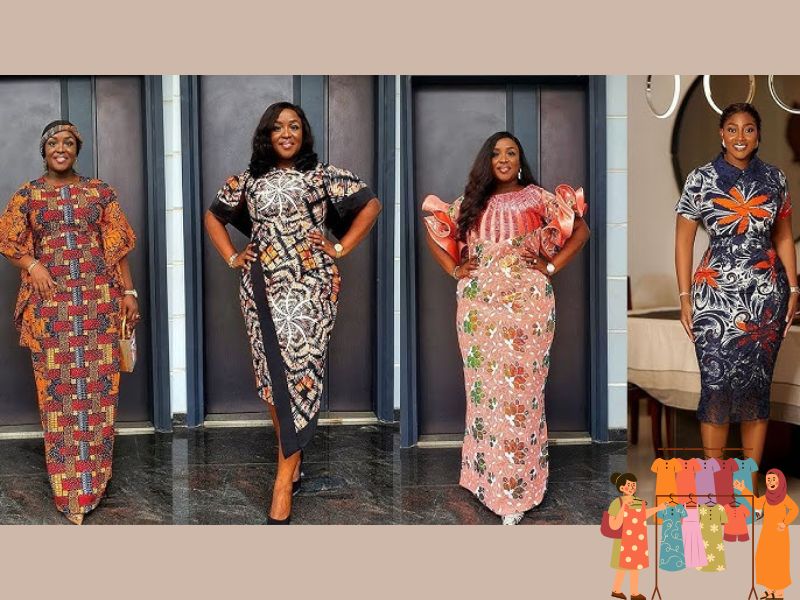African Women Style Dresses
African women’s dresses are more than just clothing—they are powerful expressions of identity, culture, and beauty. From bold prints to intricate beadwork, African fashion blends tradition with modernity to create timeless styles that turn heads across the world. In this article, we explore popular African women style dresses, fabrics, and how to wear them with confidence.

The Essence of African Fashion
African style dresses are deeply rooted in the continent’s rich heritage. Each dress often tells a story—of tribe, region, ceremony, or personal identity. Vibrant colors, handcrafted details, and unique silhouettes make African fashion globally admired.
Ankara Dresses – Bold and Beautiful
Ankara is one of the most iconic African prints, known for its bright patterns and colorful designs. It’s made from 100% cotton and dyed using batik methods.
Popular Ankara Styles:
-
Peplum Ankara Dresses – Perfect for formal occasions and weddings.
-
Ankara Maxi Dresses – Flowing elegance for day or night.
-
Off-Shoulder Ankara Gowns – A mix of modern glamour and African pride.
Kitenge Dresses – East African Elegance
Kitenge, widely worn in East and Central Africa, is similar to Ankara but has regional uniqueness in pattern and color use.
Trending Kitenge Looks:
-
Fitted Kitenge Dresses – Ideal for formal gatherings.
-
Kitenge Shirt Dresses – Smart casual with a cultural touch.
-
Layered Kitenge Styles – Volume, drama, and beauty combined.
Dashiki Dresses – Colorful Comfort
Originally from West Africa, the dashiki is a vibrant, loose-fitting tunic or dress. It’s celebrated for its bright patterns and comfort.
Dashiki Styling Ideas:
-
Mini Dashiki Dress – Great for casual or beach wear.
-
Dashiki Maxi Dress – Statement fashion with minimal effort.
-
Dashiki Tunic Over Leggings – Comfortable and stylish for everyday wear.

Boubou Dresses – Flowing Royalty
The Boubou (also called Bubu or Grand Boubou) is a long, flowing dress worn especially in West Africa. It’s a symbol of elegance and grace.
Elegant Boubou Options:
-
Embroidered Boubou – Worn for ceremonies and religious events.
-
Silk or Chiffon Boubou – Lightweight and luxurious.
-
Modern Fitted Boubou – A fusion of tradition and contemporary fashion.
Kaftan Dresses – Modest and Stylish
Kaftans are known for their loose, airy designs—perfect for hot climates or conservative settings. African kaftans are often decorated with beads or embroidery.
Popular Kaftan Trends:
-
V-Neck Kaftans with Beading – For festive occasions.
-
Brocade or Lace Kaftans – Elegant yet modest.
-
Kaftan with Headwrap Set – A complete cultural look.
Shweshwe Dresses – South African Signature
Shweshwe fabric is a dyed cotton material originating in Southern Africa. It’s known for its detailed patterns and earthy tones.
Shweshwe Dress Ideas:
-
Fit and Flare Dresses – Great for weddings and events.
-
Layered Shweshwe Skirts with Matching Tops – A classic combo.
-
Modern Shweshwe Gowns – Ideal for cultural pride events.
How to Accessorize African Dresses
African women style dresses often come alive through accessories:
-
Gele (Headwrap) – A traditional and fashionable headpiece.
-
Beaded Jewelry – Handcrafted necklaces, bangles, and earrings.
-
Woven Handbags – Colorful and eco-friendly.
-
Ankle Wrap Sandals or Heels – Balance tradition with trend.

Where to Wear African Style Dresses
These dresses can be worn for various occasions, including:
-
Traditional Weddings
-
Cultural Festivals
-
Church Services or Religious Events
-
Everyday Casual Wear
-
Graduations and Formal Ceremonies
Final Thoughts
African women style dresses beautifully blend culture, elegance, and individuality. Whether it’s a bold Ankara print, a flowing Boubou, or a modern Kitenge gown, these styles empower women to embrace their roots and shine with pride. With the right fabric, fit, and accessories, every African dress tells a story worth celebrating.
